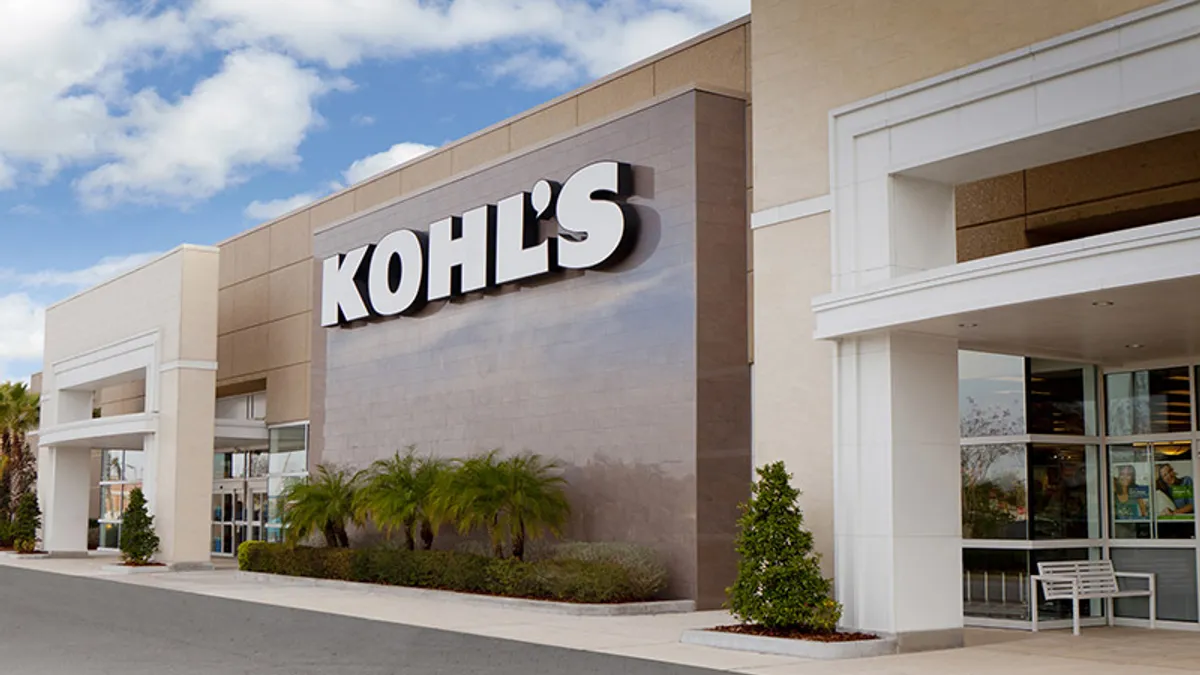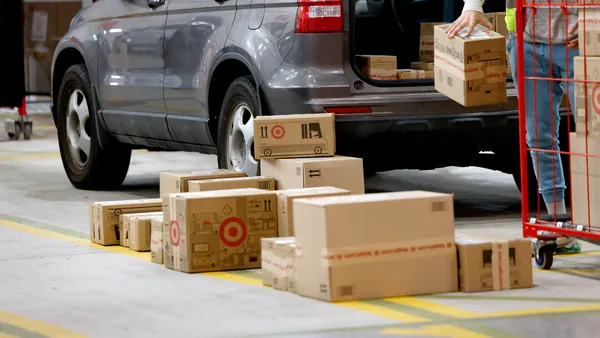Dive Brief:
- A group of investors at Kohl's wants to focus on lowering sourcing costs, improving inventory turns and assessing indirect spend to increase the retailer's profit margins, according to an open letter to shareholders Monday.
- The investor group said the retailer is overpaying for purchases in a sourcing agreement it has with a third-party agent, which accounts for 20% of its total purchases. The group also urged the company to "assess all non-merchandise" spend to lower sourcing costs and help increase efficiency.
- The group, which owns 9.5% of the company's stock, suggested focusing on customer-facing solutions to drive traffic and turn inventory faster, while controlling spend on "technology initiatives that have failed to produce meaningful results," reads the letter.
Dive Insight:
Margins are won and lost in the supply chain, and a cadre of investors plan to target Kohl's procurement practices to get the company's margins back up. Gross margins were 38.2% in 2011, the highest in nearly a decade, compared to 35.7% in 2019.
Experts have said for years that companies must get a handle on indirect spend to improve company balance sheets, underlying the investor's group position. But how that is done is case-specific, and even more so now in the wake of the pandemic.
In the case of the current global health emergency, negotiating contract terms can give suppliers more impetus to cut deals for buyers, which can result in better rates for procurement officers.
The group of investors at Kohl's wants to make sure spending correlates with corresponding reductions, and that expenses only increase in line with margin growth. The retailer has lost market share to its competitors, though it increased its investment initiatives over the last decade. If the approach and makeup of the board isn't changed soon, the lobbying investors said future business performance will be hindered.
"From 2011 to 2019, the Board has overseen the deployment of $6.6 billion in capital expenditures, including approximately $2.7 billion on technology, $2.4 billion on stores, $900 million on distribution centers and omnichannel, and $600 million on corporate and other projects," the letter stated. But the investor group said it has found "little evidence that Kohl’s is achieving anywhere near adequate returns on such investments."
The investor group also "believes that the Board has not demonstrated sufficient discipline in overseeing a prudent capital spending program." To assist CEO Michelle Gass achieve what the company calls "operational excellence," the group listed nine board candidates it said who have the needed expertise to develop and deliver results.
While Kohl's has insisted its Amazon returns program "is an accretive arrangement," according to the letter, the investors said they "remain skeptical" because of the lack of "detailed information" shared by the company. Excess inventory was listed as a key factor impacting margins, with the retailer holding 11% more inventory in 2019 than in 2011.
The group of investors includes Macellum Advisors GP LLC, Ancora Holdings Inc., Legion Partners Asset Management LLC and 4010 Capital LLC. Kohl's has been in talks with the group since December, according to reporting by The Wall Street Journal. This same investor group collaborated to change the board of directors at Bed Bath & Beyond in 2019.
This story was first published in our weekly newsletter, Supply Chain Dive: Procurement. Sign up here.














